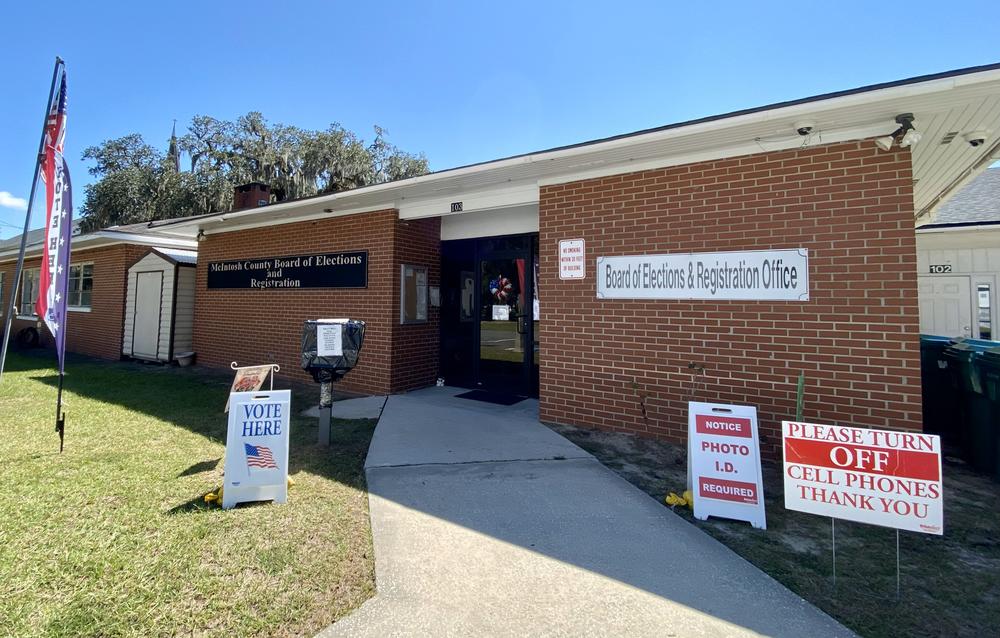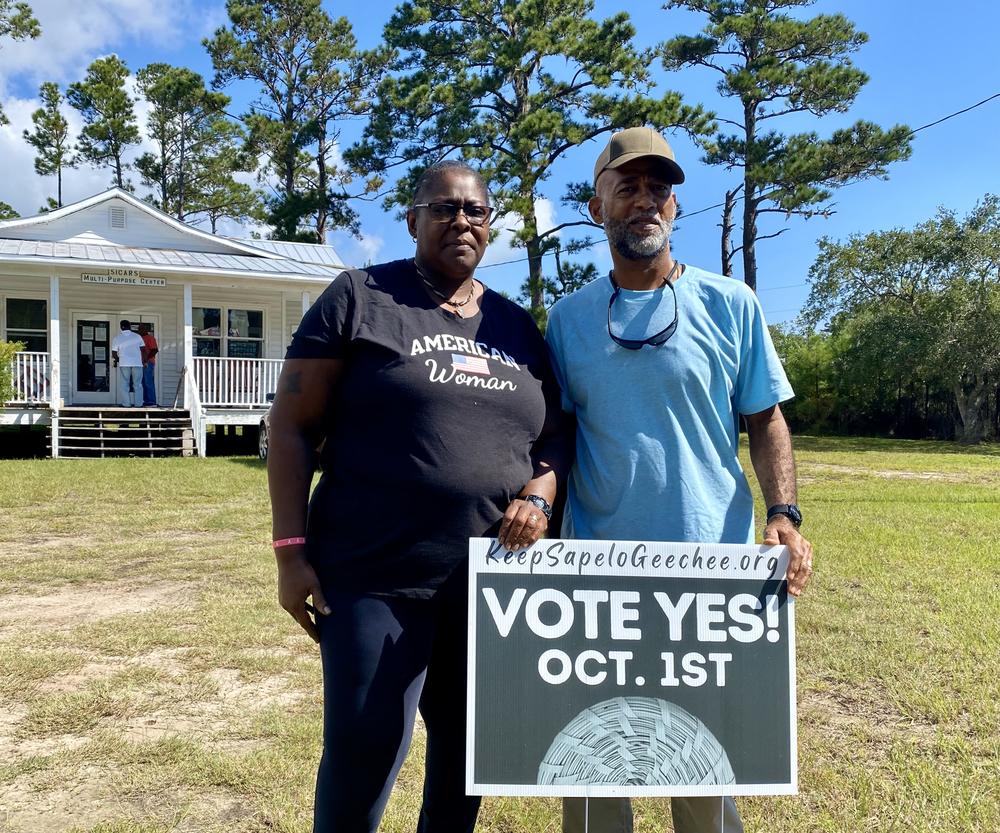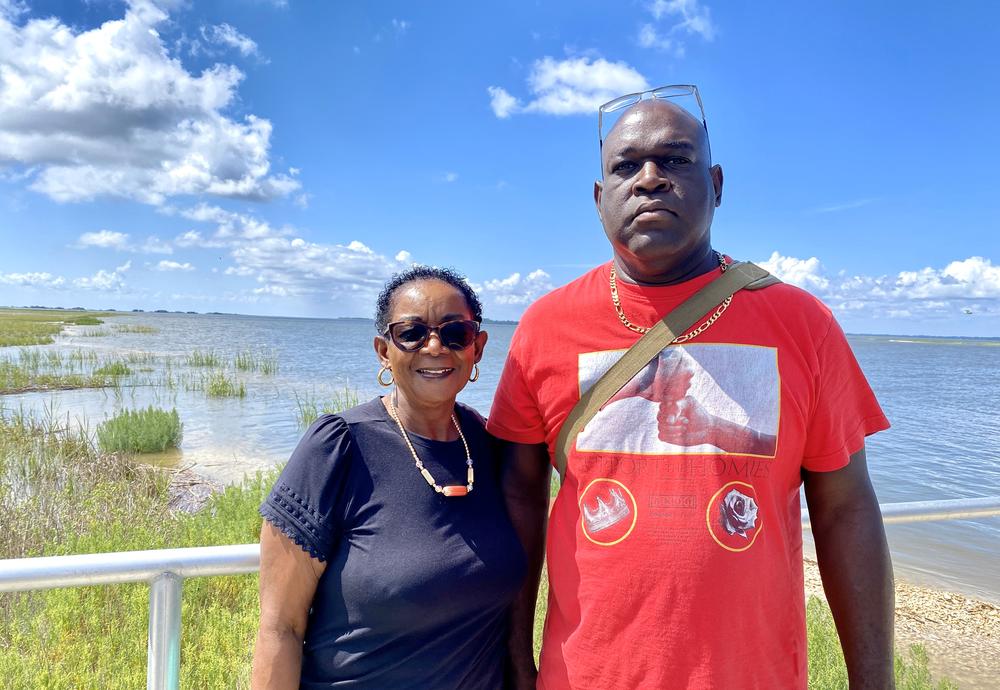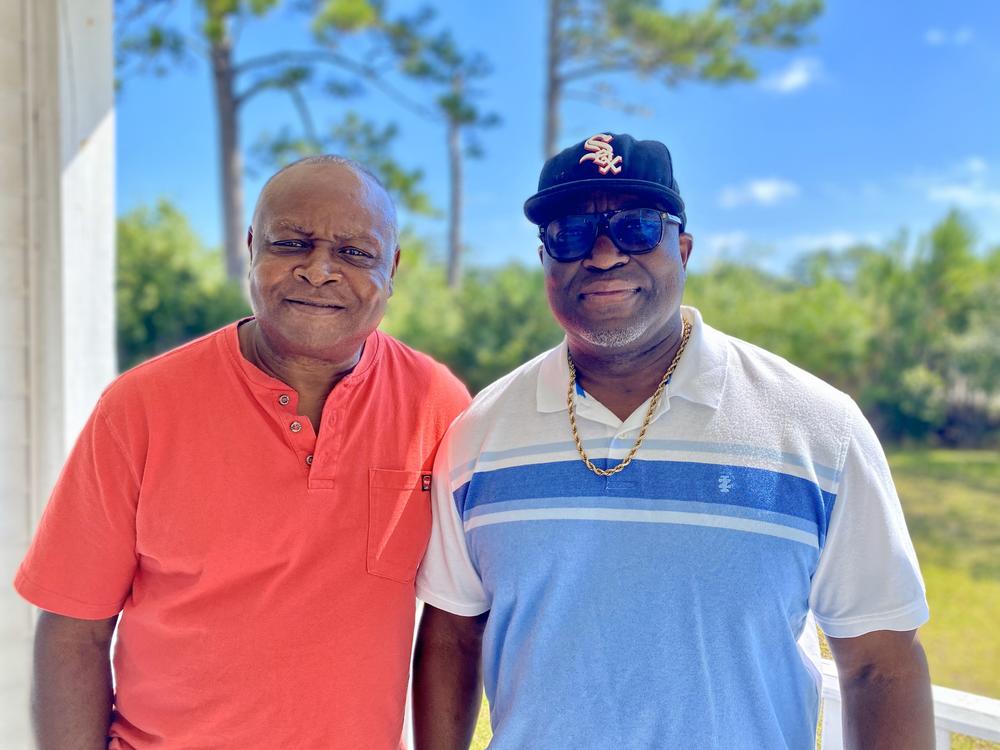
Caption
More than 800 McIntosh County residents had cast early ballots on the referendum before a state judge canceled the election less than one week before it was scheduled to be held on Oct. 1.
Credit: Benjamin Payne / GPB News
LISTEN: GPB's Benjamin Payne traveled to Coastal Georgia's Sapelo Island, where he spoke with Gullah Geechee community members about a recent rezoning that they worry will price out descendants of enslaved people.

More than 800 McIntosh County residents had cast early ballots on the referendum before a state judge canceled the election less than one week before it was scheduled to be held on Oct. 1.
Voters in Southeast Georgia's McIntosh County had been scheduled to vote this month on a referendum to undo zoning changes passed in September 2023, which allow bigger houses to be built on Sapelo Island's Hogg Hummock neighborhood.
That was until a state judge recently canceled the ballot initiative, siding with attorneys for the county who argued that the referendum violated Georgia's constitution.
Also known as Hog Hammock, the residential neighborhood is among the nation's last intact communities of Gullah Geechee people, and was founded by their West African ancestors who had been enslaved on Sapelo Island by U.S. Rep. Thomas Spalding in the 1800s to work his cotton plantation.
Passed last year by McIntosh County's majority-white Board of Commissioners, the rezoning more than doubles the maximum legal size of houses that can be built on Hogg Hummock from 1,400 square feet to 3,000 square feet.
Many Gullah Geechee residents worry that such an expansion will open up Hogg Hummock to outside development, raise property taxes and price them off the island that they and their ancestors have called home for generations.
Some smaller homes have already seen their property values rise: in one instance last year, shortly after the zoning change took effect, a 900-square-foot house in Hogg Hummock sold for $500,000.
Attorneys for the referendum's organizers last week filed a notice to appeal the judge's decision to cancel the election to the Georgia Supreme Court.
GPB's Benjamin Payne recently traveled to Sapelo Island, where he spoke with residents and other Gullah Geechee community members about what they feel is at stake. All are Sapelo Island descendants except Yvonne Grovner, who married into a descendant family.
Interview excerpts have been edited for length and clarity.

Georgetta Grovner and Reginald Hall outside the Sapelo Island Cultural and Revitalization Society.
“I would say 70% of us will be gone through taxation. So, the zoning has an ability to eradicate more of the population, as if it hadn't already been destroyed enough. On top of that, our children's children can never afford to come back here. As of April of last year, a raw half-acre of land sold for $210,000. As of April of this year, a half-acre with a 1,500-square-foot house on it sold for $800,000. I never thought in my lifetime I would see that.
"When you look at this zoning change, it affects a full myriad of things. One of the biggest things: It is now populating the island with short-term rentals for the new neighbors. We're almost on our way out. What do we do now to survive this onslaught?”
“There's a lot at stake. It's our cultural heritage, it's our home. Outside land owners that want to come and change our concept that we have here, our lifestyle that we live here on Sapelo — it's wrong.
"Their stated purpose was to enjoy and see and communicate with the people, the community, and to live and be happy. But all of a sudden, it changed. And now it's threatening our lifestyle.”

Yvonne Grovner and her son JR Grovner at the Sapelo Island dock.
“When I was young, we had 150 people on the island. Now, we're down to 28 full-time residents. No telling what it will look like 20 years from now.
"Me myself, I never sold a piece of property. But the ones who have sold property sold it because they can't afford to pay the property taxes here. It's sort of forcing their hand to sell. They sort of left without a choice.”
“You know what the rezoning is going to do: :t’s going to push our taxes up. If people want to build houses 3,000-square-feet houses, tell them to go to St. Simons Island, go to Hilton Head Island. Not Sapelo.”

Cousins Richard Banks and James Banks outside the Sapelo Island Cultural and Revitalization Society.
“To me, it's a safe place. I'm a retired military veteran who served in combat. But when I come back to this island, it has a calming effect on me, my family and everyone that comes and visits. We don't want to change that. I have my grandfather, my father, siblings that's buried on this island, and it's important that we just maintain and keep it intact the way it is.
"So, not only am I doing this for me and my generation that follows after me, I'm thinking about what my parents established for me growing up on this island. We are working as a unit, as a team, to come together with power and authority, to let others know in the local government that we're just not going to lie down. We're going to fight this thing on to the end until we get what we deserve.”
“My ancestors had limited education and basically no money, but one thing they did have was the land on Sapelo. So, I think it's imperative that we work together to preserve what our ancestors established and left for us as inheritors of this great, beautiful place right here in Hogg Hummock. There's no other place like it to me in the world.
"Seeing what's happening now with certain trends that are going on, I think that it's very necessary for me and my relatives — descendants of the island — to work together to protect what we have and not allow local government to dictate what our future is going to be.”